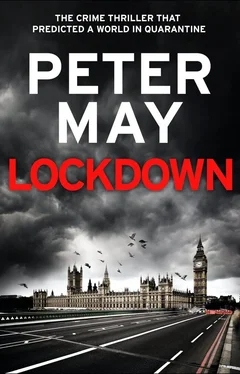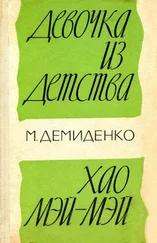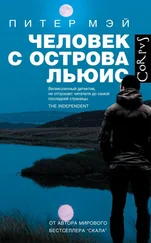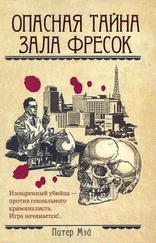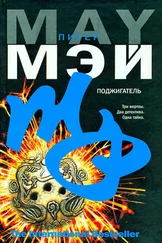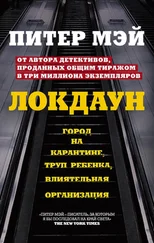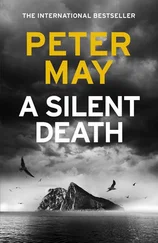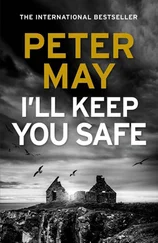Tom glared at her, filled with fury. ‘You lied to me,’ he said, barely keeping it under control.
‘I did not! I didn’t tell you, that’s all.’
‘Which is lying by omission. And friends don’t do that. Friends tell one another everything.’
‘And you’d have approved, I suppose?’
‘No, of course I wouldn’t.’
‘So in other words, I can’t have a relationship without your approval.’
‘He’s the ape man , for God’s sake. What the hell do you see in him? And even more to the point, what the hell does he see in you?’ It was out before he could stop it.
Amy turned deadly pale, and her whole world concentrated itself into a silent centre so filled with hurt it took her several moments before she could speak. ‘In a cripple, you mean? What does he see in a cripple?’ Her voice was very small, very quiet.
The colour rose high on Tom’s face. ‘No,’ he said quickly. ‘No, that’s not what I meant at all.’
‘I think you’d better go.’
‘Amy...’
‘Go. Please, Tom, just go before either of us says anything else.’
He seemed to realise that there was no way back. At least not now. Bridges had been burned. He lay his cup on the table. ‘I’m sorry, Amy,’ he said. ‘I’m sorry I came.’
The night they met, or at least the night it all began, nobody had been more surprised at the way it turned out than Amy. They’d encountered each other several times at the lab, and she knew there was some kind of animosity between him and Tom, but she had no idea then what it was. She had only recently started doing freelance work for the FSS, and MacNeil was just another policeman. A big, taciturn Scot who treated her like she didn’t exist. Until the office night out.
It was Tom who had persuaded her to go. Someone was leaving, and they had booked a room in a wine bar in Soho for the farewell do. Amy was persuaded to leave her car at home so that she could drink, and since most London taxis these days carried ramps for wheelchair access, she ran out of arguments for not going.
She was shy and self-conscious. She had only been working at Lambeth Road for a matter of weeks, and didn’t know many people, and so she had clung to Tom during the early part of the evening. But, as usual, Tom drank too much, and it wasn’t long before he found himself a man and disappeared off into the night, leaving Amy to fend for herself. She ended up sitting in a corner on her own, nursing an empty wine glass, and no one thought to offer to refill it for her. Until a big shadow fell across the table, and she looked up to see MacNeil looking down at her. ‘You want another one of those?’
Really, all Amy wanted to do was go, but here was Tom’s ape man offering to buy her a drink. And very nicely, too. So how could she refuse?
He returned with a glass of Pinot Grigio for her and a whisky for himself and sat down beside her. ‘You don’t look like you’re having a great time.’
‘Neither do you.’
‘I’m not.’
‘So why are you here?’
He shrugged. ‘One has certain social obligations.’
She laughed. ‘That’s the first time I’ve ever heard a policeman talk about social obligations.’
He smiled ruefully. ‘Aye, well, they like us to use big words in the force these days. You know what a defensible space situation is?’
She looked at him blankly. ‘I’ve no idea.’
‘It’s a garden.’
She laughed again. ‘You’re kidding.’
He straightened up and composed a serious expression. ‘M’lud,’ he said solemnly to some imaginary magistrate, ‘I was proceeding in a westerly direction on the south footpath when the accused person and other unknown assailants emerged from the defensible space situation at the apex of the highway.’ Then he relaxed and grinned. ‘You know, they send us to foreign language classes to learn to speak like that.’
‘You seem pretty fluent.’
‘I was always good with languages. I speak pretty good profane.’
‘I like your accent.’
‘Do you? Most people down here make fun of it. And in Scotland they’d call me a teuchter. That’s a daft boy from the Highlands, for your information.’
‘I’m glad you told me. And are you?’
‘Am I what?’
‘A daft boy from the Highlands.’
‘Oh, aye. None dafter.’
She looked at him as if for the first time. There was something unexpectedly open about him. No hint of side, or angle, and he didn’t seem to mind making fun of himself. He was a big man, with big hands which, she was sure, could do some damage if he chose to use them as weapons, and yet there was an appealingly gentle quality in his manner. It was in looking at his hands that she noticed the ring.
‘How long have you been married?’
‘Eight years,’ he said without hesitation.
‘Any kids?’
He smiled, and she saw the affection in it. ‘Aye, a wee laddie. Eight years old. Great kid.’
‘What’s his name?’
‘Sean. Named after his father.’ When she frowned, he explained. ‘Sean is Irish for John, but I preferred to be called Jack. My father’s called Sean, you see. And his father, and his father’s father. Way too many Seans in the family, Irish roots going way back. But I couldn’t quite bring myself to break the tradition, and it was Martha who said, what about Sean? Sounded good to me.’
‘Martha. That’s your wife?’
‘Aye.’
The party was breaking up. Someone from toxicology came over and said a bunch of them were going on for a curry if they wanted to join them. But Amy said she had better be getting home. And MacNeil said he had, too. The place emptied quite rapidly, and MacNeil said, ‘I’ll get you a taxi, if you like.’
‘Thanks.’ She let him help her out into the street with her wheelchair. The streets were crowded with drinkers who had spilled out of pubs and bars into the warm summer air. MacNeil steered her down to the corner where a bunch of yobs speaking some Slavic language were drinking cans of Fosters. One of them looked at Amy and made some comment, eliciting laughter from the others. MacNeil grabbed his shirt by the collar and nearly lifted him off his feet. His can went clattering across the pavement. ‘You got something to say, sonny, say it to me. And say it in a fucking language I understand.’ His pals were startled and instantly on the defensive, but wary, and kept their distance.
‘Don’t, Jack, don’t. Please,’ Amy said, and reluctantly MacNeil let go of the youth, pushing him back into the arms of his friends.
‘Sorry,’ he said to her, embarrassed, and he wheeled her on down to Shaftesbury Avenue.
‘Why did you do that?’
‘I hate unfairness.’ He kept his eyes dead ahead.
‘What was it you imagined he’d said?’
‘Something unpleasant. Something about you.’
‘You get used to it,’ she said. ‘I’ve been called a “chink” all my life, “slanty eyes” sometimes. And worse. Now it’s “slanty-eyed cripple”.’ As soon as she said it she thought how bitter it sounded. And she didn’t want to be bitter. She had seen what bitterness could do to people.
On Shaftesbury Avenue he hailed a taxi. The driver apologised. He didn’t have a ramp.
‘We can wait for the next one,’ Amy said.
‘Don’t need to,’ MacNeil told her. And he lifted her out of the wheelchair as if she weighed nothing at all, a child in his big, strong arms, and he put her into the taxi before lifting in the wheelchair. ‘I’ll go with you,’ he said. ‘Then there won’t be a problem at the other end.’
On the drive across town she said, ‘You really don’t have to do this, you know.’
‘Nothing else to do.’
Читать дальше
